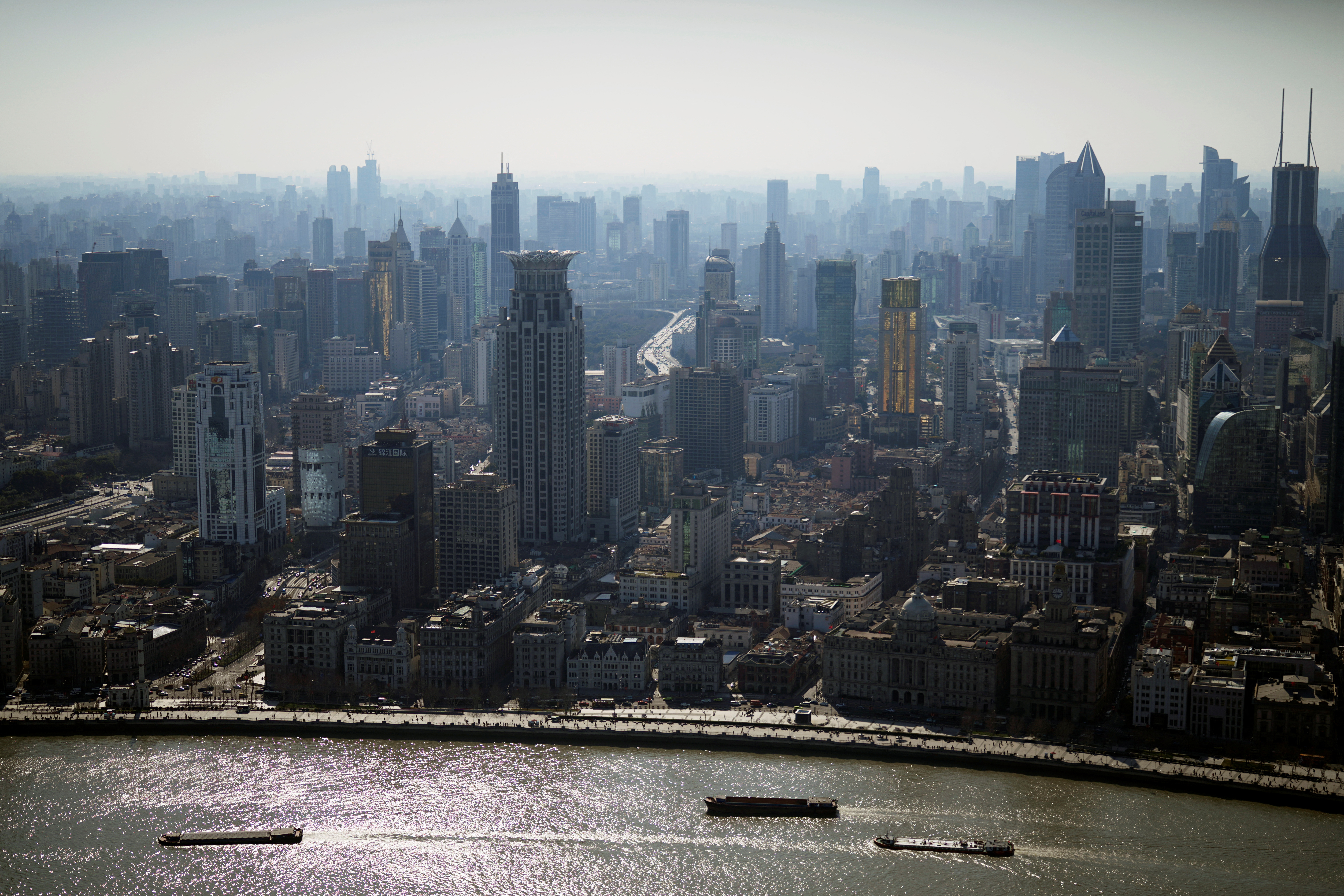Exclusive: German investment in China rises to record high

A view of the city skyline and Huangpu river, ahead of the annual National People's Congress (NPC), in Shanghai, China February 24, 2022. Picture taken February 24, 2022. REUTERS/Aly Song/File Photo Purchase Licensing Rights
BERLIN, Feb 14 (Reuters) - German direct investment in China rose by 4.3% to a record high of 11.9 billion euros ($12.7 billion) last year and also increased as a share of the country's overall investment abroad, official Bundesbank data analysed by the IW institute showed.
The data underscores concerns that German firms continue to invest heavily in China despite the government's pleas for them to reduce their exposure and its sharp cut in investment guarantees for the country.
German companies have invested as much in China in the last three years as in the previous six years, according to the IW institute report that was obtained exclusively by Reuters.
Still, German investments in China in the last four years were financed entirely by reinvested profit and companies have also withdrawn capital, painting a more nuanced picture.
"We can assume that there remains a split between the few big companies and the majority of small and medium-sized enterprises," IW economist Juergen Matthes said in the report.
"Other studies and anecdotal evidence support the thesis that some medium and small-sized businesses are seeking to reduce their engagement with China or even to exit entirely."
The proportion of German firms exiting the Chinese market or considering doing so has more than doubled to 9% in the last four years, a survey by the German Chamber of Commerce in China published last month found.
Overall German foreign direct investment dropped last year to 116 billion euros from around 170 billion euros in 2022 as Europe's largest economy hovered on the brink of recession, the IW report said.
Investment in China as a share of Germany's overall investments abroad rose last year to 10.3%, the highest level since 2014, while German direct investments elsewhere in Asia were stagnant at around 8%.
Germany faces a dilemma. Although it wants to reduce its exposure to China, the country remained its most important trading partner for the eighth year in a row in 2023, according to preliminary statistics office figures.
Within German Chancellor Olaf Scholz's coalition government politicians are divided over how much the risk of exposure to China needs to be reduced, with Scholz's Social Democrats (SPD) seeking less aggressive cuts than junior coalition partners the Free Democrats and the Greens.
Scholz will travel to China with a business delegation from April 15 to 16, a person involved in the planning told Reuters earlier this month.
($1 = 0.9343 euros)
Sign up here.
Reporting by Sarah Marsh, editing by Kirsti Knolle and Barbara Lewis
Our Standards: The Thomson Reuters Trust Principles.
